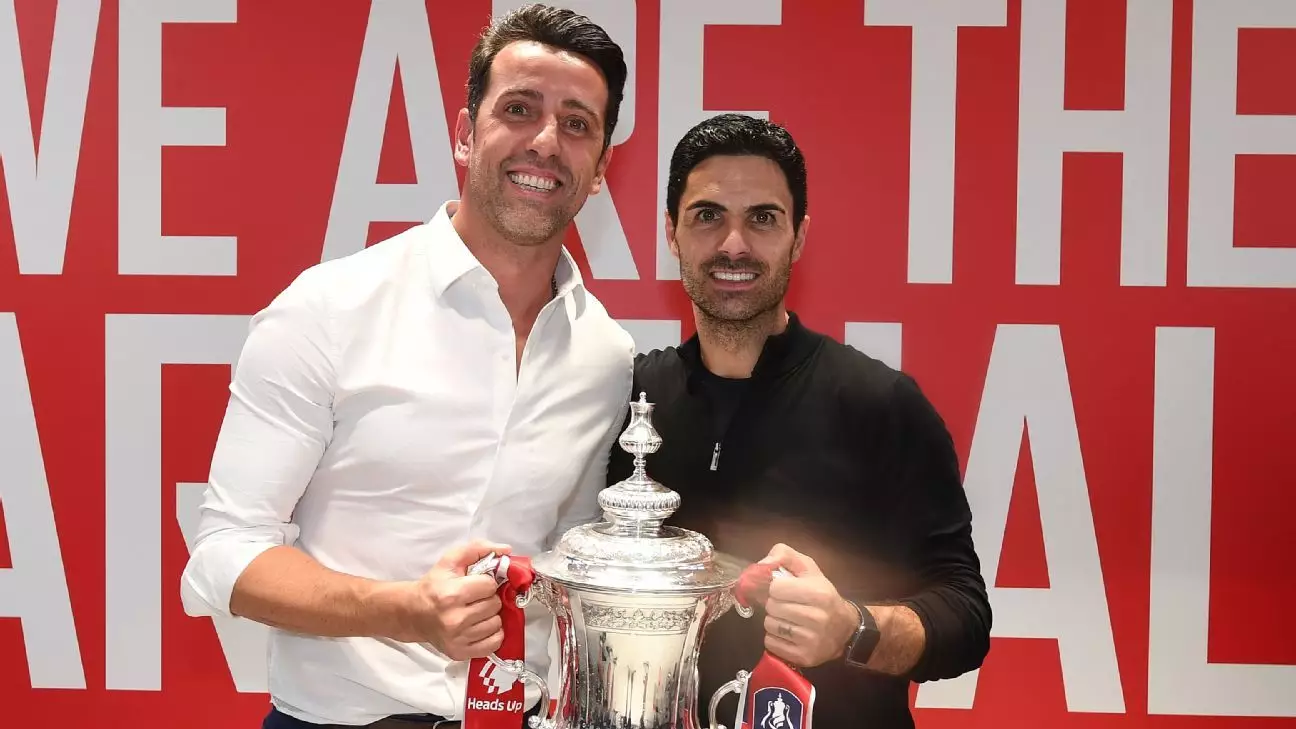Arsenal Football Club is navigating uncharted waters following the unexpected resignation of their sporting director, Edu Gaspar. This departure has raised questions about how it will influence the team’s January transfer window activities. Edu stepped away from the club in November after a successful five-year stint and is reportedly set to join a multi-club operation linked to Nottingham Forest owner Evangelos Marinakis—a move that has evidently surprised many within the club’s ranks, particularly those at their training facility in London Colney.
Despite these operational upheavals, manager Mikel Arteta has reassured fans and stakeholders that the absence of a permanent sporting director will not hinder Arsenal’s transfer ambitions. Instead, he has expressed confidence in the interim leadership of Edu’s assistant, Jason Ayto, who has taken on the role of interim sporting director. While Ayto’s appointment underscores the club’s commitment to continuity, it raises some important questions regarding the effectiveness and decisiveness of Arsenal’s upcoming transfer strategies.
Arteta has indicated that while January is typically not a lively transfer period for the club, he remains open to potential shifts in their approach, suggesting that unforeseen circumstances could shape their decisions in the marketplace. He noted, “I never expect January to be super busy,” which reflects a practical mindset amidst the uncertainty. However, he also left the door open for “surprises” and unexpected opportunities that could arise. This dual approach is crucial for navigating the complexities of player transfers, especially with the possibility of injuries impacting squad depth.
It’s worth noting that Arteta has mentioned that the future leader of the sporting department will be someone capable of taking the club to the “next level.” This makes immediate transfers particularly significant; they could set the tone for Arsenal’s performance in the second half of the season. Names like Dan Ashworth and Roberto Olabe are being considered as permanent replacements for Edu. The potential for an internal promotion of Ayto could signify a strategic pivot towards stability and familiarity within the organization.
The health of the squad also plays a crucial role in determining Arsenal’s transfer market actions. Arteta confirmed that defender Gabriel Magalhães has resumed training, providing a glimmer of hope for his participation in the forthcoming match against Everton. However, the absence of Riccardo Calafiori due to an unspecified injury could act as a catalyst for the club to engage in transfers, especially if further complications arise.
In a broader sense, Arsenal’s transfer approach will likely hinge on assessing current player fitness coupled with the club’s strategic vision moving forward. If the team encounters a wave of injuries, it may accelerate the urgency to bolster their roster. Yet, if they can maintain a healthy squad, the focus may shift to long-term investments rather than immediate fixes.
While uncertainty looms over Arsenal’s transfer strategies due to leadership shifts, Arteta’s calm demeanor and strategic foresight suggest a carefully measured approach is underway. The club’s ability to adapt to these changing conditions will be pivotal in the coming weeks as they prepare for both on-field contests and potential changes in their roster.

